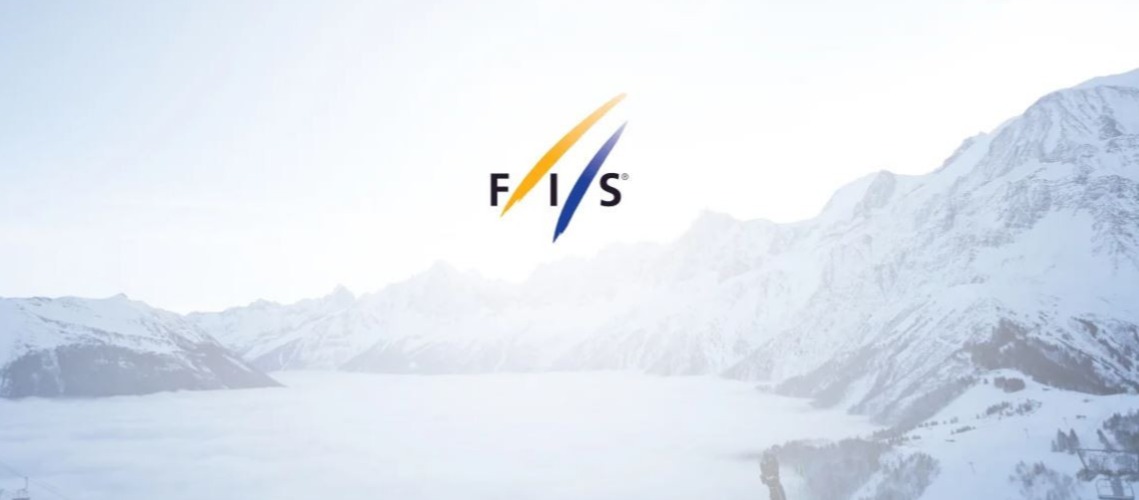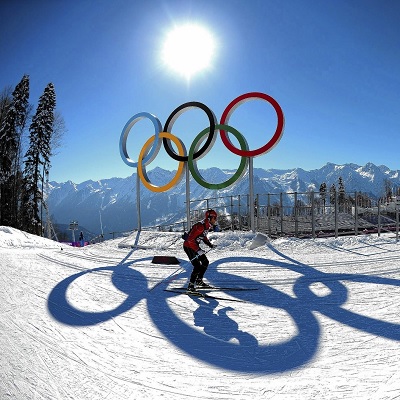Shiffrin Wins St Moritz HD, Odermatt Val D'Isere GS

Two-time defending World Cup giant slalom champion Marco Odermatt (SUI) battled through snowy afternoon conditions while charging to his third GS victory in successive years on the Stade de Olympique Bellevarde course on Saturday in Val d’Isere.
Odermatt overcame a few costly mistakes in his 2nd run to earn his 25th World Cup victory, and 15th in GS, winning the race by 0.98 seconds over runner-up Marco Schwarz (AUT). Joan Verdu (AND) achieved the first World Cup podium for the principality of Andorra, finishing third, 1.32 seconds off the winner’s pace.
The 26-year-old Swiss was fastest in the morning run, contested under clear skies, by 0.65 seconds. With brilliant acrobatic recoveries from the errors at the top of his second run and despite the limited visibility, Odermatt won the race pulling away from his competitors.
“It’s amazing to start the season with another victory here for the third time in a row – it’s not easy to ski here, but I still love this hill,” Odermatt said after the victory. "The visibility was very flat and I struggled a bit at the top with many little mistakes. I knew I had to push hard from the middle to the bottom and I think it worked,” he said.
Odermatt was fastest on the final two intermediate splits of the second run. Considering the early mistakes, his second run time was just tenth fastest among the field. His two-run winning time was 2:13.93.
“It’s always a tough race and a difficult hill – at the start, I didn’t feel 100-percent, but for me it’s always a good hill,” he said.
Odermatt continued his dominance of the discipline in which he is both an Olympic and world champion. The Swiss racer has won 13 of 19 GS races over the past two seasons, and has landed on 18 podiums while bringing home two small globes over that period.
For the all-arounder Schwarz, the runner-up finish marked his 21st career World Cup podium.
It was a highly emotional afternoon for Andorra’s Verdu as he ascended from fifth after the morning run to the third-place result to make history for his tiny country.
“It’s crazy – I really don’t believe it,” Verdu said, shortly after his podium finish. “We’ve worked so hard for this – there has been a lot of hard moments and injuries. I really managed a good second run – I knew I could make a good run with this slope and this visibility.” I am really proud to represent Andorra at this level,” he said, holding back tears.
Verdu’s family was in the Val d’Isere finish area, shedding tears while witnessing the historic moment.
“I just want to inspire all the Andorran little guns to believe and to push hard,” Verdu added. For the 28-year-old racer, his first World Cup podium came in his 27th World Cup start. “I wasn’t going to ski for a top ten today, it was all or nothing,” he added. “Finally, it is an amazing result for me and I cannot believe it.
In the morning run, 22 of 70 starters were DNF's on the demanding, knee-jarring Face de Bellevarde track, with its 450-meter vertical drop. Five of 30 racers failed to finish the afternoon run while struggling in tough visibility and windy conditions.
Odermatt tallied 100-points with the victory in his season-opening race as he pursues a third successive overall World Cup title. After two races, Schwarz leads the overall standings by 36 points ahead of his countryman Manuel Feller and by 60 ahead of Odermatt.
U.S. Ski Team athlete River Radamus secured a 10th place result in the first men’s giant slalom of the season. “Val d’Isére is the most challenging and demanding giant slalom of the circuit so it was a tough welcome back to the circuit,” said Radamus. Radamus ran bib 16 and landed in the 10th spot after run one. The swiss skier, Marco Odermatt, continued his dominant skiing, both run one and two up over a second from the rest of the field. The second run was just as tricky for the skiers. However Radamus skied a clean line making it to the finish without hesitation. He ended up in 10th place for his first giant slalom of the season. “It was awesome to get one under the belt and to come away with the top ten was great,” said Radamus. “I wasn't thrilled with either of my runs and I have a lot of work to ski the way I know I can on race day but still happy with the top ten.”
Stifel U.S. Ski Team member George Steffey did not qualify for the second run. Tommy Ford, Brian McLaughlin, Isaiah Nelson and Patrick Kenney also raced but they did not finish the first run.
For the women, even with 90 World Cup wins under her belt, Mikaela Shiffrin (USA) stood nervously around the leader's chair in St. Moritz on Saturday, waiting to see if her early downhill time would hold up. The day started out beautiful and sunny with a solid snow surface for the competitors. Shiffrin ran bib three and immediately took the top spot, skiing an aggressive and clean line to nail the pitch and rollers. The fiercest downhill competitor, Sofia Goggia of Italy, came just a few skiers later, also skiing an gutsy line. She came in just 0.15 behind Shiffrin, giving Shiffrin the clear lead and eventual win. Goggia ultimately took second place with Italian teammate Federica Brignone in third.
"Winning World Cup races is hard and I never take it for granted," Shiffrin said in explaining her reaction to the victory. "Especially this season, there's so many athletes who can win and I never expect to be in front of somebody. Every time I race I know I have to really earn that if I want to be on the podium and winning, and today is no different. I felt very good with my skiing, but at the very end I had one small mistake. I wasn't sure if the rest of the run was good enough."
But it was, giving the 28-year-old her first World Cup downhill victory since March 2022 and her third win of this season following two slalom triumphs.
"I think the biggest challenge with downhill, for me at least, is how hard you can push on the limit and stay clean and also find the fastest part of the turn where you're accelerating," Shiffrin said. "On the turns I felt so much speed and momentum, which was wonderful."
That feeling led her to ski an aggressive, near-perfect top section with bib No.3 on a sunny day in the Swiss Alps, before she took a wide turn towards the end of the challenge to leave the door open for Goggia.
But the three-time defending World Cup downhill champion was not as fast through the speed traps as Shiffrin and made a similar error — "bigger than my mistake," Shiffrin said — forcing her to settle for second.
"My run was maybe not so clean as other downhills I did in the past," said Goggia, who won Friday's super-G. "But anyway I'm happy (all) the same because even with the mistake and with dirty lines, I'm still second."
Goggia seemed the least surprised of all about Shiffrin's victory, revealing that she trained downhill with the American last April and was impressed with her physical stamina.
"I knew that she (Shiffrin) could be really the one to beat today," Goggia said. "She has already won some downhills in her career, and Shiffrin is always Shiffrin — you can also expect that she comes first."
If Shiffrin's win was a surprise to most, Brignone's third place could also be considered as such, as the Italian giant slalom and super-G specialist reached only her second downhill podium in the last three-and-a-half years.
Skiing with bib No.1 a day after finishing fifth in Friday's super-G, Brignone enjoyed perhaps the cleanest run of all, skiing an error-free race to set a target time that only two others were able to surpass. "I'm really happy about my performance, I did everything that I wanted to do," Brignone said. "I was smooth on the flat parts and aggressive on the turns — that's what I was looking for yesterday and I didn't find it."
Brignone will hope to keep that momentum going in Sunday's second super-G, but Shiffrin and Goggia will start as the favourites, with Goggia aiming to reclaim her position at the top of the podium. "Tomorrow, it's another day," she said.
Stifel U.S. Ski Team member Bella Wright also started her downhill season strong with a 12th place finish. “Today was a big stepping stone for me,” said Wright. “I've been having some interesting training days and I’ve been trying to lay down an aggressive run so I was happy to make it to the finish with a smile on my face.”
The action continued for the Stifel U.S. Ski Team with Alice Merryweather set to make her official return to World Cup skiing running bib 33. The weather began to turn just a few racers before her run with the sun going behind the clouds, making the visibility extremely poor and dangerous for speed. The race still ran as planned for Merryweather and she made it down to the finish.
“It was probably one of the scariest runs I’ve ever done,” said Merryweather. “It was so dark so it was not what I would have wanted as my first run back, but I am also really proud I made it down and if I can get through that hopefully I can ski almost anything."
As Merryweather crossed the finish line she was overcome with emotion as she made her return to the circuit after more than three years off the circuit. Her teammates immediately embraced her in the finish area congratulating her for making it back.
“It has been more than three and a half years since I pushed out of a World Cup start gate and I’ve dreamed of this day for so long. There are so many emotions and so much that has helped me become who I am in the past three years,” said Merryweather.
The race was called off right after Merryweather ran due to the extremely poor visibility making it unsafe to continue. However, the race is still considered a valid race.
Jackie Wiles, Keely Cashman, Tricia Mangan and Lauren Macuga all slated to compete did not run due to the midway cancelation.














